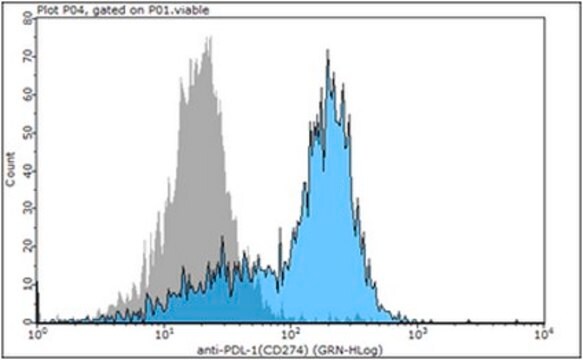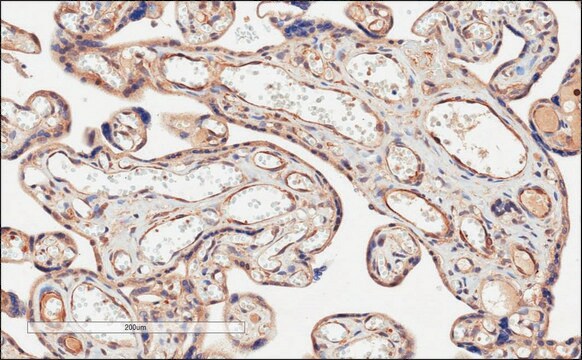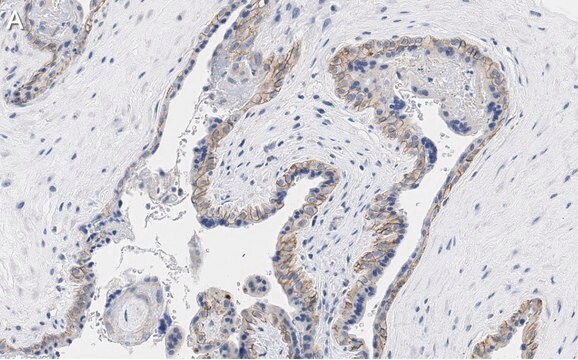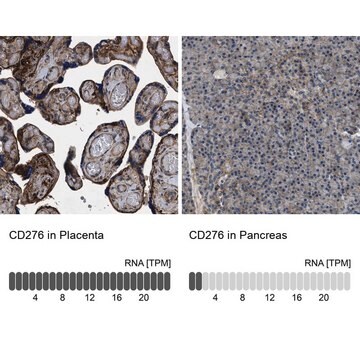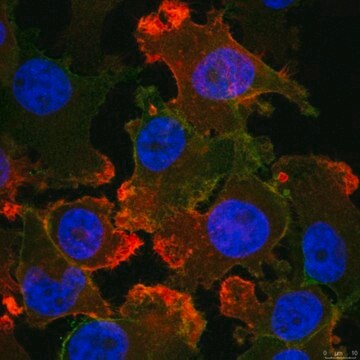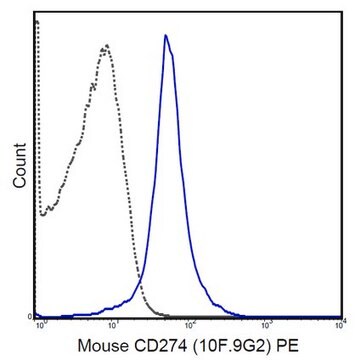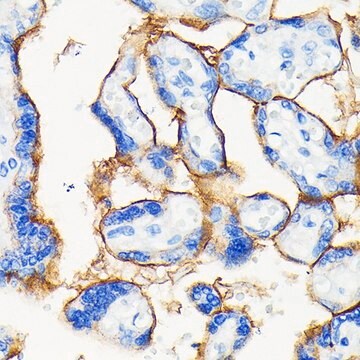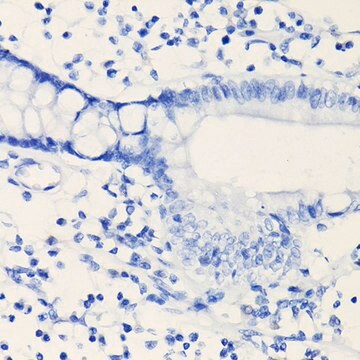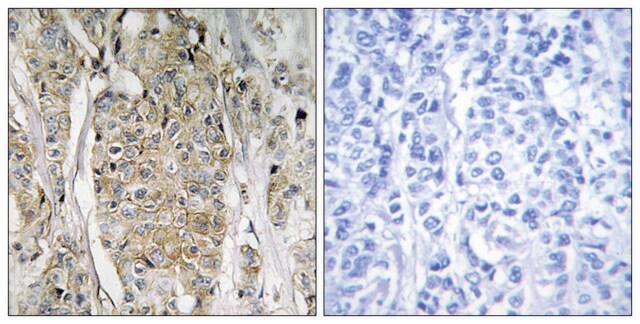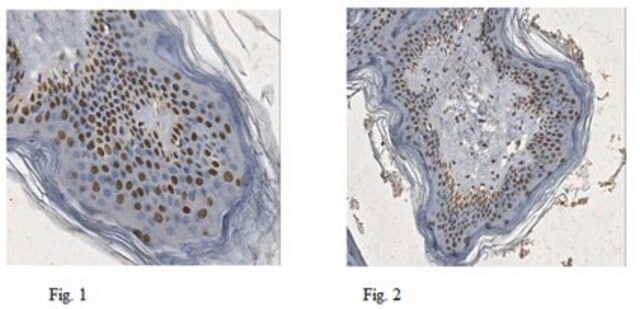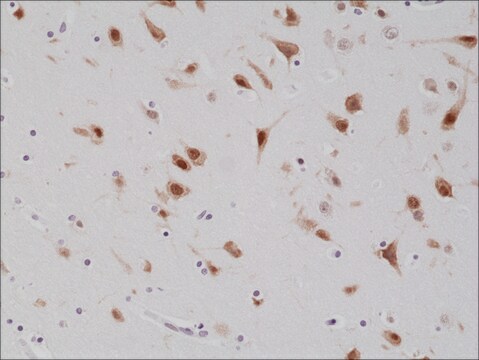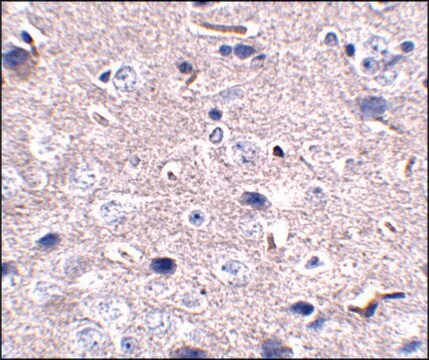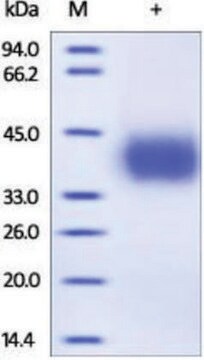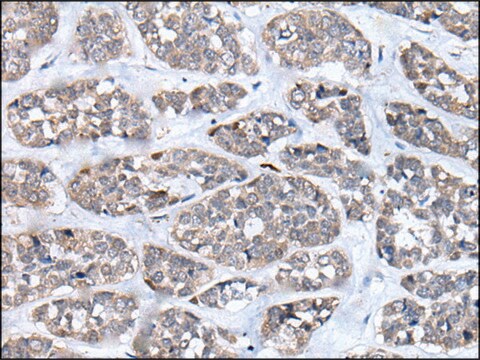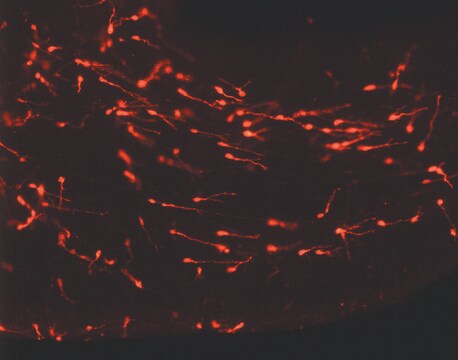MABC991
Anti-PD-L1 Antibody, clone 10F.9G2
clone 10F.9G2, from rat
Sinónimos:
PD-L1, PDCD1 ligand 1, Programmed death ligand 1, B7 homolog 1, B7-H1, CD274
About This Item
Productos recomendados
biological source
rat
Quality Level
antibody form
purified antibody
antibody product type
primary antibodies
clone
10F.9G2, monoclonal
species reactivity
mouse
technique(s)
flow cytometry: suitable
immunohistochemistry: suitable
inhibition assay: suitable
isotype
IgG2bκ
NCBI accession no.
UniProt accession no.
shipped in
ambient
target post-translational modification
unmodified
General description
Specificity
Immunogen
Application
Induces Function Analysis: Blockade with a representative lot of anti-PD-L1 combined with IL-2 enhanced antiviral CD8 T cell responses during chronic LCMV infection (West, E.E., et. al. (2013). J Clin Invest. 123(6):2604-15).
Inhibition Analysis: A representative lot blocked the action of PD-L1 (Grabie, N., et. al. (2007). Circulation. 116(18):2062-71;West, E.E., et. al. (2013). J Clin Invest. 123(6):2604-15;El Annan, J., et. al. (2010). Invest Ophthalmol Vis Sci. 51(7):3418-23).
Quality
Flow Cytometry Analysis: 1 µg/mL of this antibody detected PD-L1 in one million EL4 cells.
Target description
Linkage
Physical form
Other Notes
¿No encuentra el producto adecuado?
Pruebe nuestro Herramienta de selección de productos.
Storage Class
12 - Non Combustible Liquids
wgk_germany
WGK 2
flash_point_f
Not applicable
flash_point_c
Not applicable
Certificados de análisis (COA)
Busque Certificados de análisis (COA) introduciendo el número de lote del producto. Los números de lote se encuentran en la etiqueta del producto después de las palabras «Lot» o «Batch»
¿Ya tiene este producto?
Encuentre la documentación para los productos que ha comprado recientemente en la Biblioteca de documentos.
Los clientes también vieron
Nuestro equipo de científicos tiene experiencia en todas las áreas de investigación: Ciencias de la vida, Ciencia de los materiales, Síntesis química, Cromatografía, Analítica y muchas otras.
Póngase en contacto con el Servicio técnico